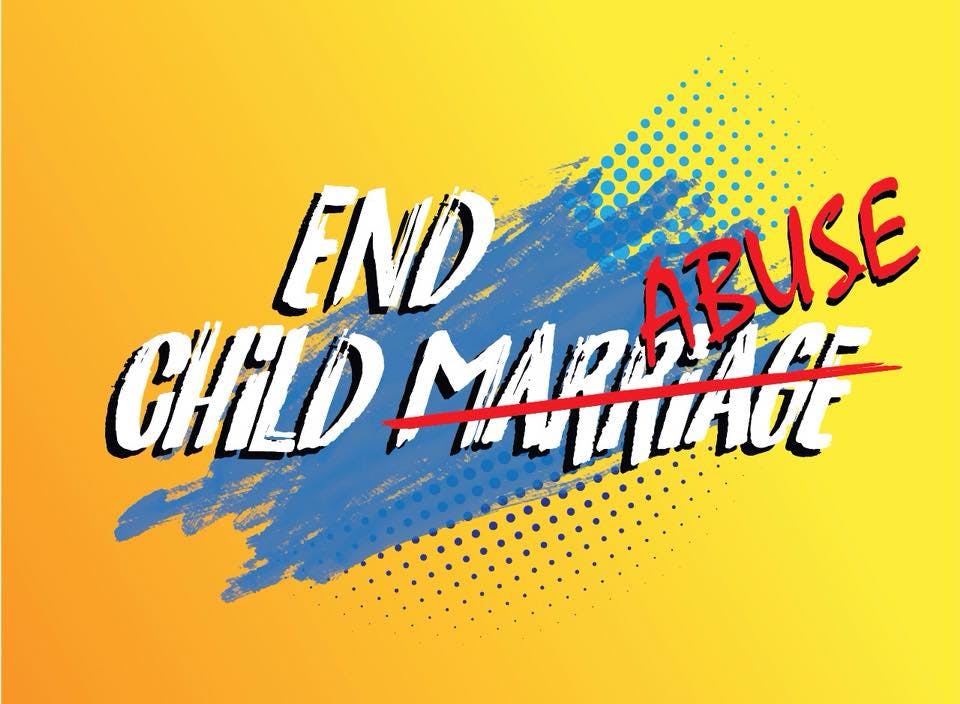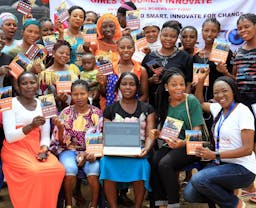The Case to #EndChildMarriage around the World

At the age of 14, I excitingly resume my senior secondary school but notice a school mate is not back in school. And a few weeks later, I learn that she got married to her father’s friend as his third wife and I never encountered her again until this day. I doubt that Hadiza ever completed her secondary education let alone experience a university education. On another part, I wonder how life turned out for her and I can only pray that she survived the marriage she found herself in – so early in her life. I pray she had safe deliveries without any health complications. I pray that she never became a victim of any form of violence in her home. And why did I pray all these? Studies have shown a number of connected issues to child marriage.
Child marriage is simply a formal marriage or informal union involving any person(s) under the age of 18 years. Many times we only have pictures of marriages like that of Hadiza in our heads when we think of child marriage. However, there are also marriage unions that involve children (both parties in the union are under the age of 18 years). And this is why; we need to be cautious when we term these unions ‘marriage’. In the words of the Ambassador of the African Union Campaign to End Child Marriage, Nyaradzayi Gumbonzvanda, it is not a marriage, its abuse! She warns about how we sometimes rationalize the union in our heads when we continue to unconsciously call it a marriage. However, it remains the only formal way to refer to it, so we simply need to maintain that conscious understanding that it is not a marriage and must not be accepted as such.
The drivers of child marriage vary from community to community. In my community, child marriage is largely driven by:
Poverty – where the larger population are extremely poor people (living below $1 per day).
Culture – where there is strong perception that girls need to be married off early to prevent them from falling pregnant or becoming loose/wayward girls. Then, there is the perception that is rooted in the history of patriarchy and gender inequality where social norms already discriminate girls and women and treats them as objects to be exploited as desired.
Religion – where some religious beliefs have emerged from individual and collective interpretation of religious instructions and expect a girl to experience her first menstruation in her husband’s house.
Poor educational attainment – where there is poor access to quality education which is also influenced by poor government investment in education and parents argue that there is no value in sending girls to school when they don’t necessarily emerge as sound educated individuals who can stand out in society.
Poor implementation of policies and poor enforcement of laws – where perpetrators of child marriage continue to go unpunished and the impunity continues. The Nigerian Constitution does not establish a minimum age of marriage, but the Child Rights Act, 2003 sets that age of marriage at 18 years old. However, only 24 of Nigeria’s 36 states have domesticated the Child Rights Law in their States. And no implementation has been recorded in terms of enforcement of these laws.
In Nigeria, 43% of girls are married off before their 18th birthday. 17% are married before they turn 15. Regional variations show prevalence of child marriage to be as high as 76% in the North West region and as low as 10% in the South East. Although data shows a 9% decline in the prevalence of child marriage since 2003, action is still needed to prevent thousands of girls from being married as the population growth from these marriages rule out the potential of any significant decline. Globally, 650 million women alive today were married as children and 12 million girls are married every year. We need to stop the abuse! We need to end child marriage!
What am I doing to #EndChildMarriage? I lead my team, at Girls Voices Initiative, to design creative programs to educate adolescent girls about their rights as enshrined in law and we empower them to lead advocacy for girls’ rights including an end to child marriage, end to gender based violence and promoting girls’ education. We have worked with girls to develop audio-visual resources where girls champion advocacy for an end to child marriage. (https://www.youtube.com/watch?v=WbCFU8aAcLs&list=PLuPEQeI98dCuC_xbSMU_C1...) and (https://www.youtube.com/watch?v=tPOd4tA6FzY) Now, we are targeting survivors of child marriage with personal agency workshops, vocational and entrepreneurship skills to empower them as advocates modelling the potential of women to break the cycle of poverty that results from child marriage when the girls’ education has been terminated and she has no skills and no means of income. Understanding that these girls were married not of their mature understanding or consent, we cannot abandon these girls in the marriages, but explore opportunities to meet them where they are and target them with skills that they can use to improve their chances of livelihood. Join me to break the cycle of poverty for survivors of child marriage!
Data credits: https://www.girlsnotbrides.org
https://www.youtube.com/watch?v=LEBprIwHYKQhttps://www.youtube.com/watch?v=Qgo5AkUrXKY
https://www.youtube.com/watch?v=NQxa-_E4y4E




